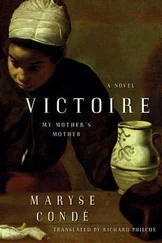Oblivious to the tragic incident that was playing out at the other end of town, Matthieu walked away from the seafront. His nose itched more and more every day. Soon, he thought, he would discover who Celanire was.
He knew that on that Sunday the members of the Lucioles association were meeting just steps away from the seafront on the Champ d’Arbaud. For some time now Matthieu no longer recognized the woman he had married. She had become Celanire’s alter ego. Powdered and perfumed, she followed Celanire like her shadow and never missed a single dance, masked ball, reception, cotillion, banquet, or book club. Matthieu practically never saw her. They no longer took their meals together. She came home when he was leaving for work and began her day when he had finished his. They hadn’t made love for ages. When they did happen to find themselves side by side in a bed, she would push him away, feigning menstruation, headache, or fatigue — unusual affectations for such a docile wife.
The Lucioles association was housed in a magnificent edifice with a courtyard behind and a garden out front that a penniless white Creole rented to Celanire. Besides the copper-potted palms and the gilt mirrors, the hall was crowded with men and women, mulattos and blacks, all perfumed, pomaded, and powdered alike. The afternoon session was already well under way. Elissa de Kerdoré had finished her poetry recital, and they were now launching into opera. Matthieu recognized his wife’s voice singing Johannes Brahms’s Rhapsody for Viola, opus 53. There was something shocking about this sudden obsession for singing in public. And for singing this type of music. It might have been acceptable if she treated everyone to the Kilonko epics of the Wayanas! In a bad mood, Matthieu looked around for a seat. After a while Amarante bowed to the applause. Celanire, who had been standing at the foot of the stage, gazing reverently at the artist, dashed up the steps with her usual enthusiasm and handed her a bouquet of flowers. Another burst of applause. The two women embraced each other, then kissed.
There was something so shameless in the way they hugged, in the way their breasts rubbed against each other and their lips greedily sucked on their kisses, that Matthieu stood up in horror. Didn’t anybody else see what he saw? His nostrils itched like mad, and in a flash the truth exploded in a fit of sneezing. Celanire and Amarante were on the closest of terms. As close as husband and wife.
We should point out that at the start of the century female homosexuality in Guadeloupe was not something completely unknown. The lovely Elissa de Kerdoré championed the cause. Twice divorced, she had devised a theory that, for want of a publisher, she expounded on every possible occasion. In her opinion, heterosexuality was an obligation imposed by society. In fact, marriage was unnatural. The proof: it failed under every clime and in every country! If women followed their natural inclinations and kept to themselves, they would experience greater happiness, intimacy, and tenderness. There was more pleasure and voluptuousness to be had from the caresses of a woman than being screwed by a man. Moreover, she didn’t mince her words when censuring motherhood, that straitjacket in which women were imprisoned. Elissa’s discourse struck a sympathetic chord, especially among the women of the upper classes who deliberately sought out their doudous from the dregs of society and paraded them openly in public. Branches of the Zanmi association had been created at La Pointe, Basse-Terre, and Le Moule. Its members lived openly as couples, some of the partners dressed in men’s trousers and pepper-and-salt-striped twill frock coats, even wearing top hats. For the church, it was an abomination. The priests recalled the sacred duty of procreation and the virtues of motherhood. Alas, they were wasting their time!
Celanire and Amarante descended the steps arm in arm. Matthieu leaped to his feet. As he bounded toward them, Celanire pushed Amarante to one side and, shielding her with her body, confronted him with such an insolent expression that he stopped dead in his tracks. What could he possibly do in front of so many people? Hit them? Insult them? He turned and ran outside.
That particular Sunday evening the Champ d’Arbaud was crowded with people, for the weather was so glorious that the inhabitants of Basse-Terre, who much prefer to sit inside behind closed shutters, had consented to enjoy the fresh air. Children were bowling their hoops. The older ones were playing hop-scotch. Lovers strolled down the paths, gazing into each other’s eyes. Mothers were sitting on the park benches, whispering secrets and exchanging the latest gossip. In the shade of the mango trees, unsavory characters were hatching more mischief. Matthieu climbed into a carriage for rent stationed at a corner of the square and returned home to the Redoute neighborhood. He went to bed but was unable to fall asleep. The hours passed.
The guilty party arrived home in no hurry at the stroke of midnight. Matthieu, tucked up in bed under his mosquito net, heard the horse pulling a tilbury whinny, piss heavily, then leave in a clatter of hooves. Then he heard Amarante messing around in the washroom, indulging in her ablutions. Finally she came into the bedroom, protecting the flame of her candle with her hand. It had been a long time since Matthieu had really looked at his young wife. He had not noticed how much she had changed. He had married a young beauty, that was for sure, but shy, gauche, and demure so as not to attract the attention of strangers. Now she held her head high and was as succulent as a Kongo cane. She no longer shaved her head as smooth as a coconut in the Wayana tradition. She had let her hair grow, and straightened and curled it with a hot iron like the women of the upper class. For a moment he was jealous of this transformation in which he had no part.
Amarante slipped into bed, bade him good night as if nothing could be more normal, blew out her candle, and calmly turned on her side. It was then he grabbed her and immediately asked what was going on between her and Celanire. She shook him off and confronted him. Elissa de Kerdoré was absolutely right. Women are meant to live among themselves. Thanks to Celanire, she had discovered infinite bliss. And she didn’t mean simply a sexual or physical attraction, but an incredible communion of minds. Celanire and she had the same tastes, the same desires, the same dreams. They caught themselves sharing the same thoughts and doing the same things at the same time. As a result they had decided their liaison would no longer be kept secret. On the contrary, they would openly flaunt it. At this point, Matthieu couldn’t help snickering. She didn’t really think that Celanire was going to leave the governor, his prestige, and his money to live with Sappho on love alone? Amarante inclined her head and calmly repeated what she had just said. While she shamelessly described her vice, Matthieu gradually filled with anger. He might have forgiven her if it had been a man, a strapping stud, well equipped where it was needed! But horrors! Cheated on by a woman! Cuckolded by a female! His anger bubbled up, suffocated him, boiled over like a pan of milk forgotten on the stove, and he set upon Amarante. He kicked and pummeled her like a common drunkard, he who had never raised a hand to her. She received his blows and his punishment, eyes closed, like a martyr. He ended up throwing her to the floor and then fell upon her. She managed to shake him off and ran for the door. He thought about running after her, but a violent remorse lacerated his heart. He began to sob uncontrollably like a child while a torrent of abuse flowed from his mouth. He heard himself scream at her and throw her out. “Out, shameless hussy! I no longer want to set eyes on you! Never set foot inside my house again!” After this fit of anger, he collapsed onto the bed and burst into tears.
Читать дальше












